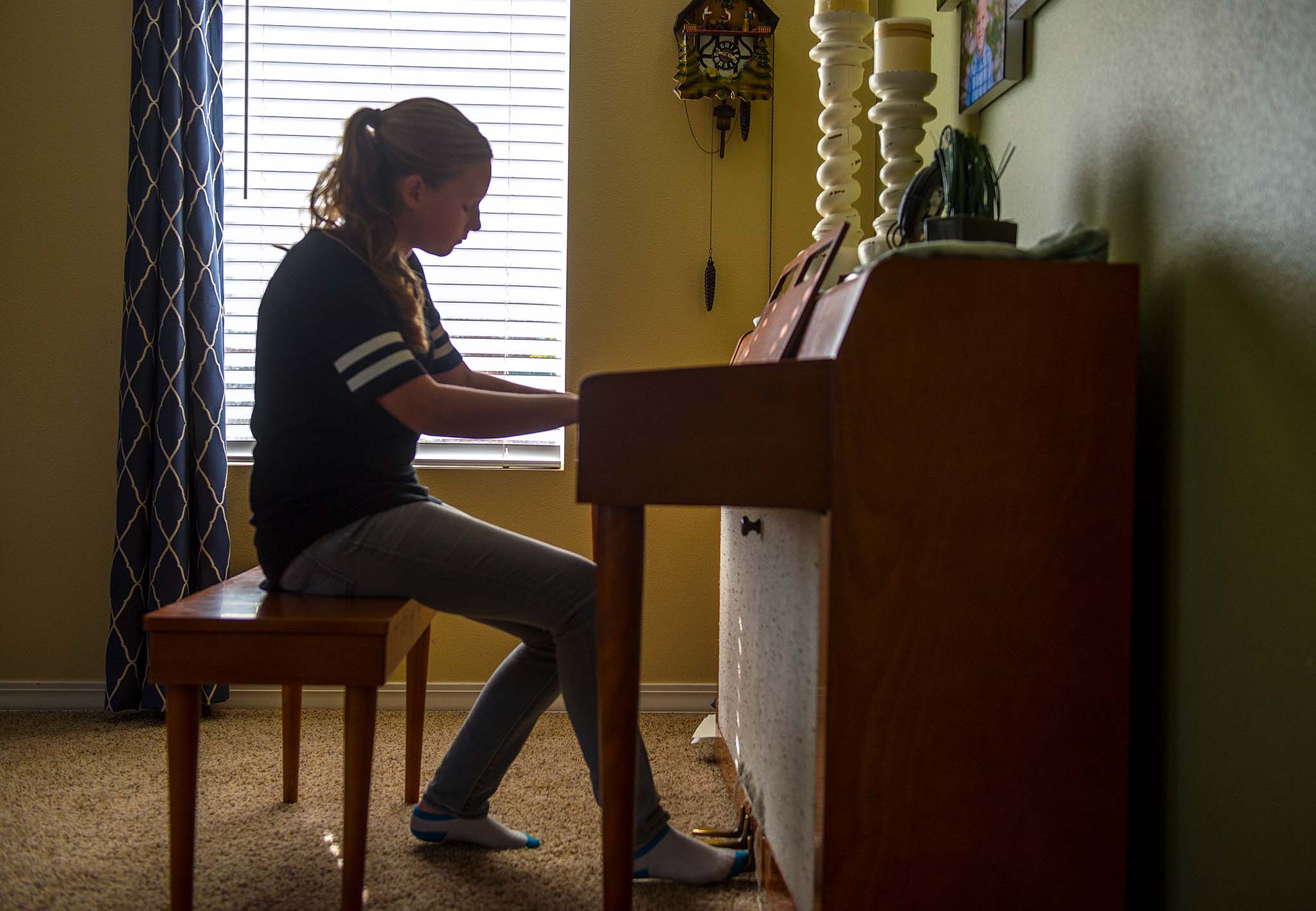By Peggy Fletcher Stack
The Salt Lake Tribune
Ally Smith was in preschool — or maybe kindergarten — the first time some kid said she must be a terrorist.
What prompted that childish assumption? Young Ally had mentioned her birthday: Sept. 11, 2001.
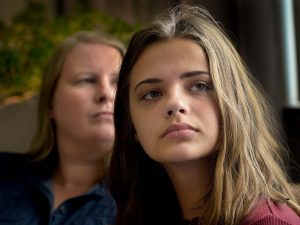
Ally Smith
Scott Sommerdorf | The Salt Lake Tribune
When Ally reported this exchange to her parents, Aaron and Marissa Smith, they realized it was time to tell the baffled child what happened on that day of infamy.
“Some dangerous men wanted to hurt our country,” they told her. “They are called terrorists.”
But, they assured her, “it has nothing to do with you.”
That was the moment, though, when the concerned adults wondered if or when to fill in the blanks with some of the day’s horrific details.
Should they show their child images of two jetliners slamming into the World Trade Center’s twin towers or would that simply produce a frightening visual loop to play in her brain like it still does for millions of others? Would it make her afraid of air travel at a time when her mom worked for JetBlue?
At what age should they describe the smoke-choked stairwells, where thousands barreled down to escape, while scores of firefighters raced up in a heroic effort to save others? What to say about those who lost their lives that day — the tumbling towers, the scarred Pentagon, the smoldering field, the changed nation?
And when would it be appropriate to let her know about the al-Qaida perpetrators and the subsequent wars in Afghanistan and Iraq? Or how different the attackers were from virtually all Muslims?
The Smiths, who live in Sandy, introduced some of these aspects over time, gently, gingerly, carefully, kindly — avoiding documentaries, books or movies until they felt their daughter was ready.
Today, a decade and a half after those appalling assaults, Ally turns 15, part of a generation living in a post-9/11 world.
They have never known a nation without foreign terrorist attacks or long security lines, the Patriot Act and Homeland Security, suspicion of unfamiliar immigrants or generalized anxiety. They have not seen many movies where the bad guys were menacing Russians rather than vaguely Middle Eastern men or, worse, depicted specifically as Muslims.
“There will be teens who were born after 9/11,” President Barack Obama said in 2014, according to a CBS report. “It’s remarkable. Although they didn’t know the horror of those days, their lives have been shaped by the pain since. … What gives us hope — what gives me hope — is that it is these young Americans who will shape all the days to come.”
To three Utah 15-year-olds who entered the world that day under gray overcast skies, that’s a distant goal and a heavy burden. For much of their childhood, they may have thought that all the American flags, banners and ribbons blanketing their neighborhood were just for them.
‘I’m having a baby, and we’re going to war’
On that Tuesday morning of 2001, Sarah Wells had been bed-bound at Jordan Valley Medical Center with a high fever for nearly four days, with nothing to watch on television but news.
She woke up early to the image of what she thought was a small commuter plane hitting a World Trade Center high-rise. By now, she was alert but confused about what she was seeing. Then she saw a low-flying jet headed toward the second skyscraper, thinking maybe someone was taking photos.
“When that plane hit, I remember the terror I felt,” Wells says. “People on the news were freaking out. I woke up my mom who was with me.”
Soon, doctors and nurses who came into her room to check her seemed more focused on the TV.
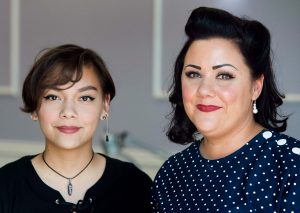
Chloe Quirante with her mother, Sarah Wells
Rick Egan | The Salt Lake Tribune
“I’m having a baby, and we’re going to war,” she recalls thinking. “It’s like having a baby on Pearl Harbor Day. I was terrified because I didn’t know what the state of the world would be.”
After the twin towers collapsed, Wells insisted the aides turn off the TVs. A few hours later, she gave birth to her daughter, Chloe Quirante, by cesarean section (one of only two born in that hospital that day). Due to complications, Wells and her baby stayed additional days in the hospital.
“It was weird to be going in with one world,” Wells pondered as she carried her newborn home, “and coming out with an entirely different country.”
Chloe’s first birthday brought back so many images and emotions Wells had tried to move beyond — seeing people jump out of buildings, for example — that the drama of the day really “hit home.”
So she went online and found a small support group: “Mommies of 9-11-01.”
It has nine members nationwide, who talk to one another about what it was like to rear babies with that birthday.
“That was really helpful,” the Midvale mom says. “We still do a birthday exchange and email each other.”
Wells kept all the newspaper and magazine articles in a Rubbermaid tote to show Chloe, which she did when her daughter was 7 or 8.
The birthday hasn’t affected Chloe too much, Wells says. “It’s weird how fast people forget.”
Today’s teens, she says, “don’t seem to know about it.”
‘I don’t know if I can stop the baby from coming’
Karen Danielson was experiencing some contractions when she heard the news from New York. She slowly made her way to class at Utah Valley University, where she was studying elementary education.
“You cannot have your baby today,” Danielson’s fellow students exhorted her as they sat in class discussing the events of the day and trying to find out if friends and family on the East Coast were safe.
“I don’t know if I can stop the baby from coming,” the mommy-to-be replied.
Her first child, a daughter, Elisa, was born around 9 that night.
“It was one of the best days of my life,” Danielson remembers, “but a horrible day.”
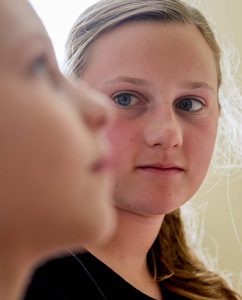
Elisa Danielson
Leah Hogsten | The Salt Lake Tribune
When Elisa was about 6, her mom decided it was time for “the talk,” knowing that the subject eventually would come up at school. “I figured it would be better for me to introduce it rather than have it be a shock.”
The Lindon mother started out with the positive.
“Some things happened on your birthday that brought our country together and helped us be more focused on unity,” Danielson told her child. “Every year we celebrate that unity.”
Later, when Elisa’s uncle joined the military and was sent overseas, the young girl thought she caused his absence.
“Uncle Sam had to go to war because of my birthday,” the child lamented.
“That’s when it hit her the most,” says her mother, who now has six children. “It was the first time I had seen her sad [about her birthday].”
When Elisa was 12, the two went to Ground Zero together. They didn’t go to the museum, but took a bus tour around it and landed at the memorial, standing in silence.
“We were both shocked at the sight,” the mother recalls. “They were still rebuilding it.”
Mother and daughter always get a reaction when people hear about the birthday.
“I’ve had people tell me all kinds of weird things,” Danielson says. “Either she was cursed, which is ridiculous, or extra special. I tell them she would have been just as special if she had been born four hours later.”
At times, they laugh about it.
For her part, the 15-year-old is philosophical about the day.
“Even though a lot of people died,” Elisa says, “a lot of people were also born that day. There’s always good even when there’s bad.”
Plus, she says, no one ever forgets her birthday.
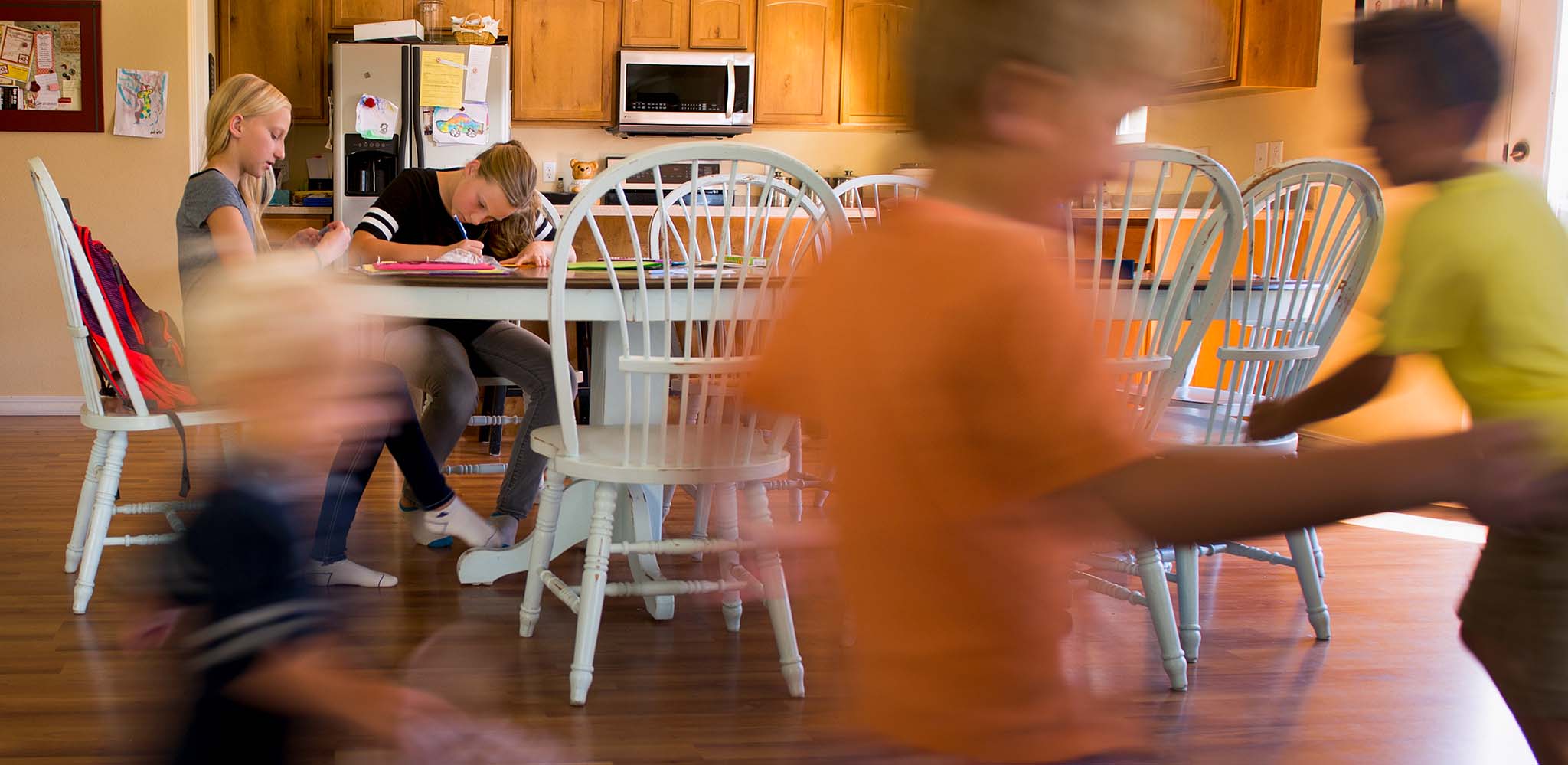
Elisa Danielson, center, and her sister McKenzie, left, finish their school homework as their brothers play
Leah Hogsten | The Salt Lake Tribune
She is why ‘we can reflect on that day with any joy’
Marissa and Aaron Smith saw no reason to cancel their scheduled medical appointment that day — even after hearing about the attacks.
Marissa had endured contractions for several days, and the doctor asked, “Do you want to give birth today?”
The couple thought that at least one good thing could happen to offset the unfolding tragedy, so the doctor told the two to go walking. They went to Target to do some laps and take their mind off of everything, but striding past the electronics department they saw a bank of TVs showing over and over the grisly images the world was witnessing.
Allison Jo Smith was born about 9 p.m., shortly after the couple heard the comforting strains of an impromptu Mormon Tabernacle Choir concert playing on television.
When loved ones arrived to welcome the newborn, they were overcome, not with elation, but with reverence.
For some years after that, family members avoided all the anniversary specials and waited for Ally to ask questions. They staged birthday parties where cakes, candles, gifts and balloons — including one with a “Finding Nemo” theme and a shark piñata — took their rightful place alongside the wider world’s sober remembrances.
Then, in 2010, when Ally was in fifth grade, her parents took her to New York.
“I didn’t realize the full enormity of the attacks until that day,” Marissa says, feeling a sense of solemnity and holiness.
“Ground Zero was still empty,” Aaron recalls, struck with emotion just thinking about it. “But it was sacred ground.”
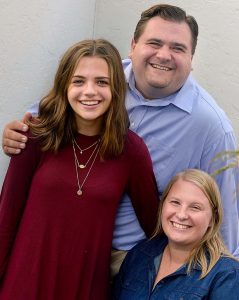
Ally Smith, with her father, Aaron, and mother, Marissa
Scott Sommerdorf | The Salt Lake Tribune
Ally is the reason, the father adds, “that we can reflect on that day with any joy.”
But the parents have been determined not to let their daughter feel scared of — or angry toward — Muslims or any religious group. Theses suicide bombers “were extremists,” the parents told her, “not representative of the Muslim faith.”
Ally has taken those lessons to heart.
“It would be wrong to be afraid or dislike Muslims for something a group of men did,” she says. “I wouldn’t want people to dislike or fear me.”
For a long time, though, she hated to tell people her birthday. She was embarrassed, especially when greeted with awkward statements about how she caused the attacks.
Since her trip to the Big Apple, Ally feels even more connected to that day. Now, she thinks its “kind of cool … to share this day with all the people who sacrificed themselves or were so brave.”
And she no longer is shy about telling people.
“When I get older, I want to remind people how significant it was,”Ally says. “In the future, younger people won’t know about it as well as we do.”
Granddad Doug Smith says the child born into his family that historic day has been a “light and blessing to us all these years … an invitation for us to be more inclusive of others that we don’t know or yet understand.”
On that score, he says, Ally is “a symbol of hope.”
In the end, that may be what all 9/11 babies represent — hope over hate, valor over venom, peace over war, a promising future over a painful past.
pstack@sltrib.com
Twitter: @religiongal

